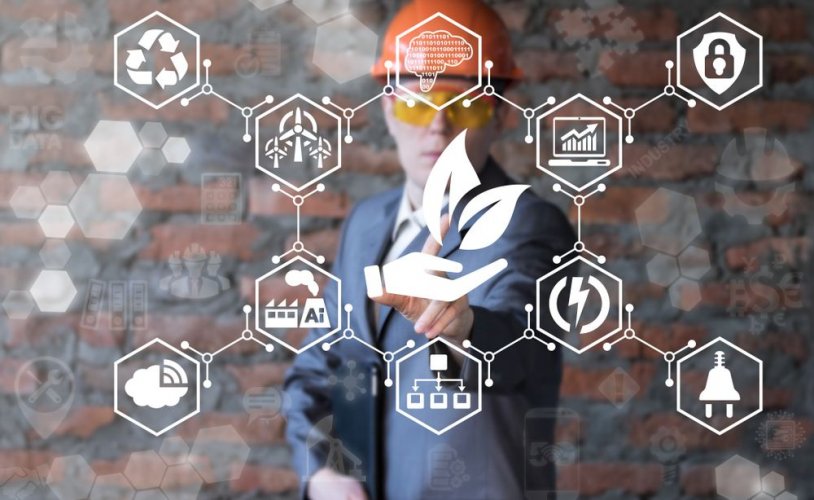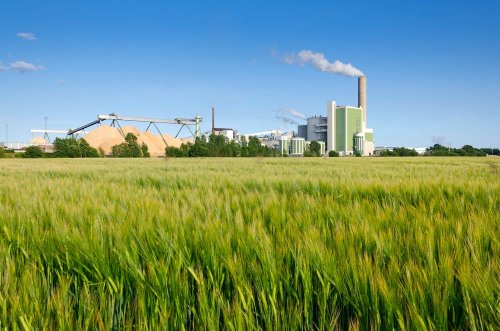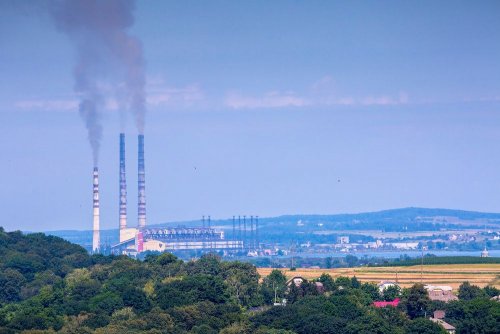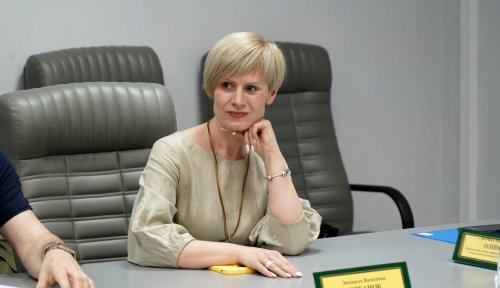On July 16, 2024, the Verkhovna Rada adopted the European integration Law No. 11355 “On Integrated Prevention and Control of Industrial Pollution”. Thus, Ukraine has implemented certain chapters of Directive 2010/75/EU.
EcoPolitic analyzed what the 75th EU Directive provides for, what legislation the EU has in place to protect the environment from industrial emissions and eco-modernization of enterprises, and when the provisions of the new Ukrainian law on industrial modernization will come into force.
What documents in Europe regulate industrial pollution
Directive 2010/75/EU of the European Parliament and of the Council on industrial emissions (an integrated approach to pollution prevention and control)
Approved : November 24, 2010.
Entered into force: January 6, 2011.
Appointment: replaced several previous legislative acts in the field of industrial pollution at once.
Goal: reduction of pollution from industrial facilities.
The main principle: "the polluter pays".
Mechanism: the enterprise's impact on the environment is assessed comprehensively, and not on its individual components, such as air, water or soil. Based on the results of the assessment, a single integrated permit is issued.
The main requirement : implementation of best available technologies and management methods (BAT) by industry.
In the event that the costs of BAT exceed the environmental benefits of their application, a temporary postponement of their introduction is provided.
There are differences in the environmental legislation of EU member states, but they are insignificant. For the most part, they are present in the administration – for example, different bodies can issue integrated environmental permits in different EU states.
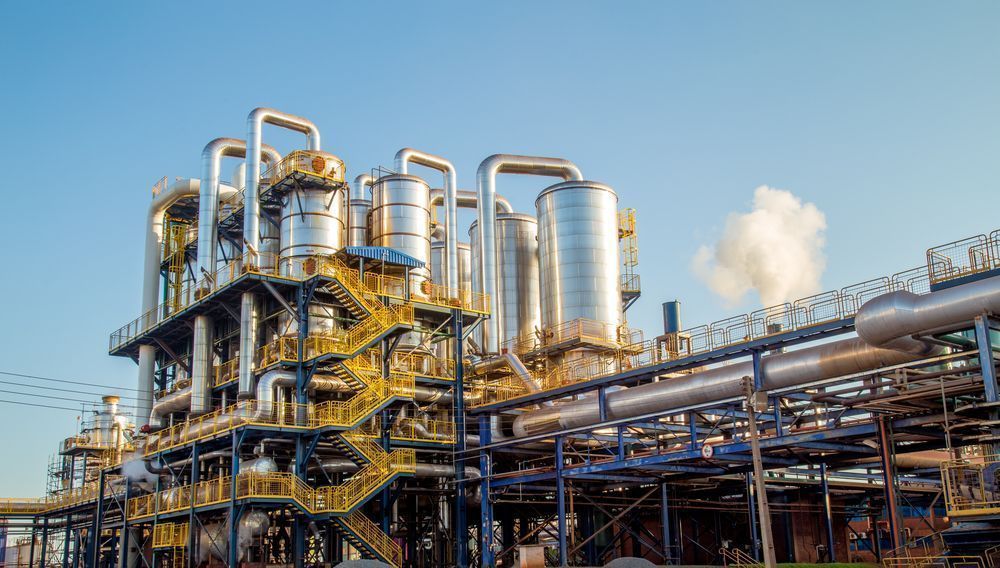
Integrated environmental permits in the EU
As of 2015, enterprises in the EU received 51,615 integrated environmental permits. Most of them were issued in 1999-2007 based on the requirements of the previous Directive 96/61/EC on comprehensive pollution prevention and control.
The consistent policy of the European Union on the eco-modernization of industry produced significant results: for the period from 2004 to 2022, large combustion plants in the EU reduced emissions of sulfur dioxide SO2 and dust by 92%, and nitrogen dioxide NO2 by 70%. Interestingly, emission reductions were achieved simultaneously with economic growth.
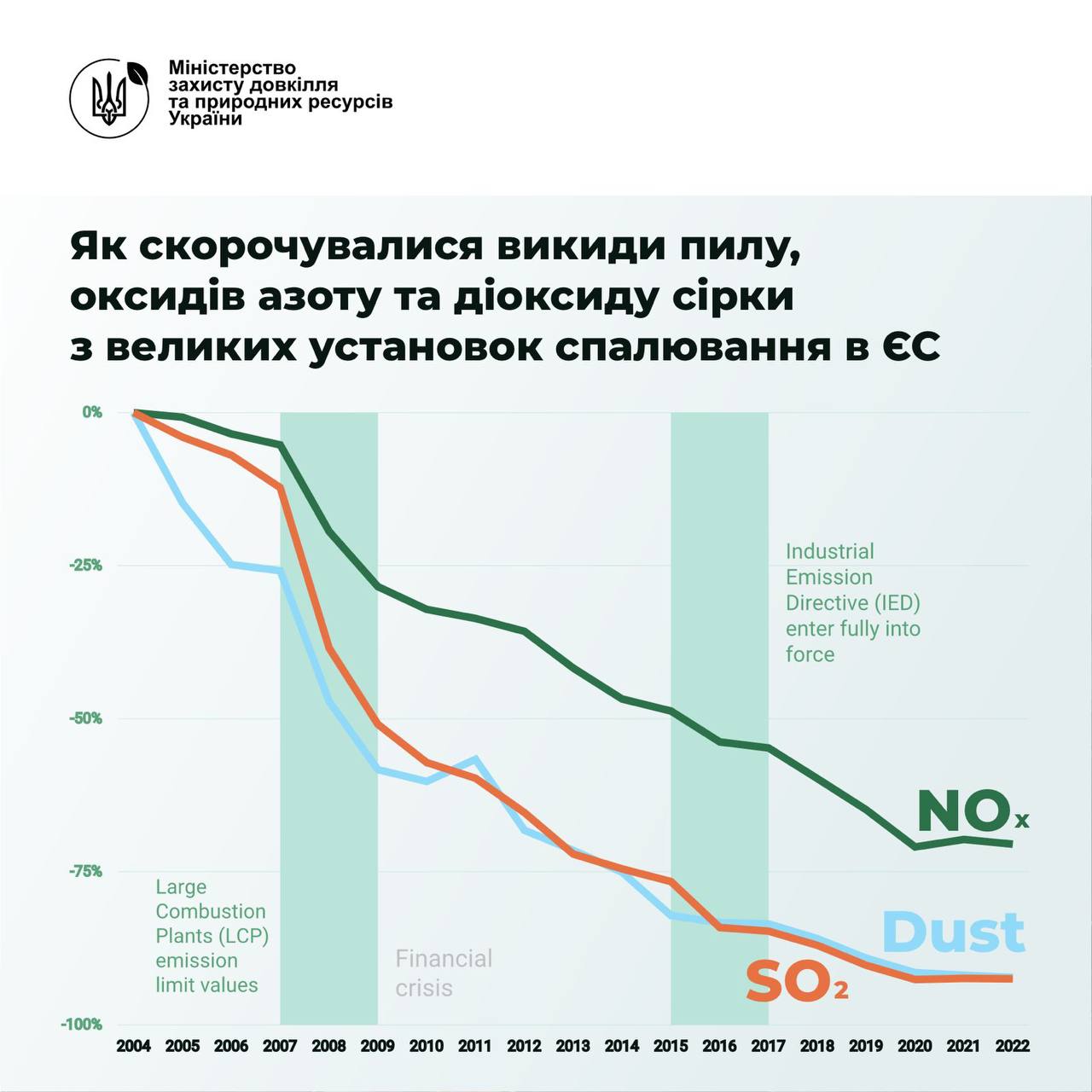
Source: t.me/mindovkillia
Derogations from environmental requirements for European enterprises
Individual productions may receive exemptions from the strict environmental requirements provided for by EU legislation. For this, it is necessary to correctly justify the need for their provision.
So, for example, the Ministry of Environmental Protection of the Czech Republic helps businesses overcome the challenges associated with the implementation of Directive 2010/75/EU. In particular, the department advises and gives methodological recommendations on how to obtain a concession. Currently, 35 enterprises that received them are working in the Czech Republic. These companies belong mainly to the energy and heating sectors, as well as the glass industry. That is, of all enterprises in the country that have integrated environmental permits, 2% received concessions.
Financing of eco-modernization of enterprises in the EU
Environmental protection measures in the European Union were implemented with the involvement of:
- industry's own resources;
- credit funds;
- finances of various EU funds;
- funds of the respective national funds of the member states of the European Union.
It is important to note that the implementation of environmental projects in the EU countries took place in parallel with the reconstruction, eco-modernization and re-equipment of the main equipment.
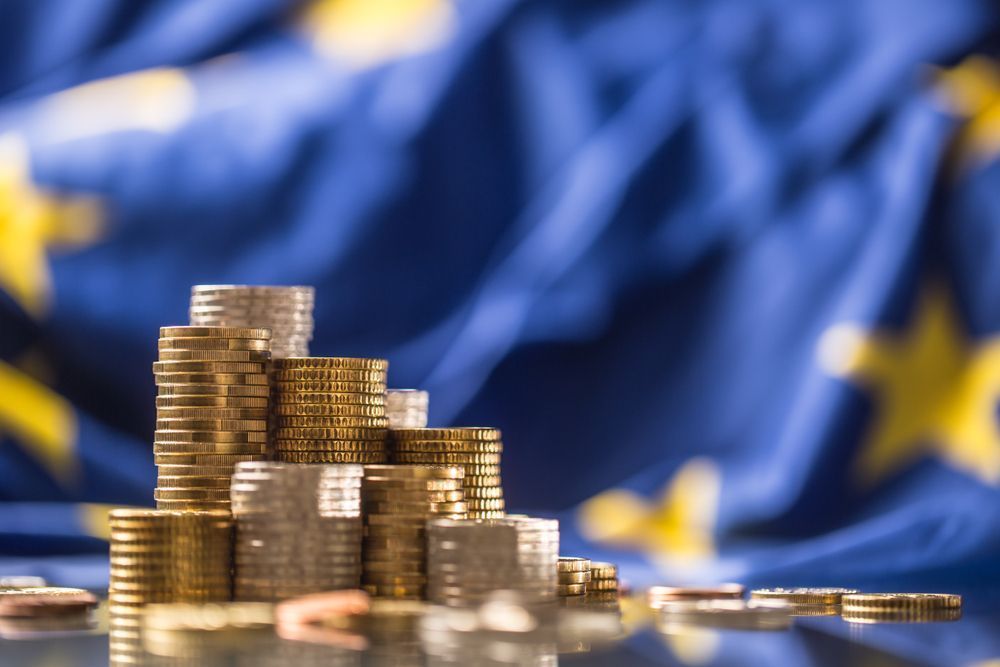
When the Law of Ukraine No. 11355 "On Integrated Prevention and Control of Industrial Pollution" will come into force
The document enters into force in part:
- bylaws — within 12 months. The norms of draft law No. 11355 provide for its implementation by enterprises from the third quarter of 2025 (within a year after the date of probable adoption);
- separate provisions on the application of the conclusions of the BAT — after 4 years after the end of martial law, except for installations that are put into operation for the first time.
Earlier, EcoPolitic wrote, that July 16 Verkhovna Rada approved draft law No. 11355 on industrial pollution in the second reading, and on August 6 signed by the president Volodymyr Zelenskyi.
EcoPolitic also talked about what will change for Ukrainian enterprises with the adoption of this law and as enterprises get an integrated environmental permit.

